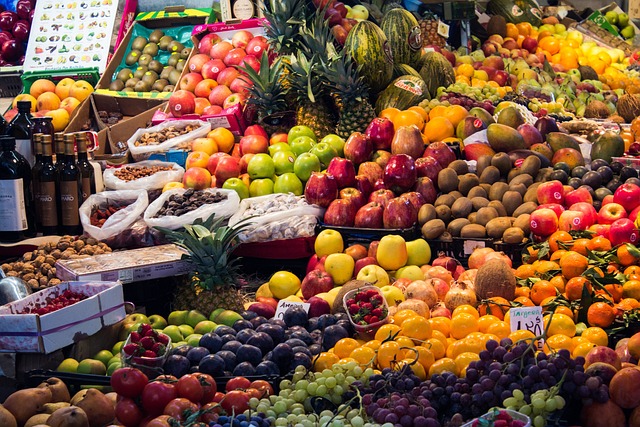
A healthy lifestyle is key to your overall wellbeing. Maintaining a health-focused diet wards off many chronic conditions such as high blood pressure, heart disease and diabetes. Additionally, fueling your body with healthy foods helps keep your body functioning at its best. That includes your reproductive system.
When you’re faced with a diagnosis of infertility and move ahead to treatment such as IVF you may feel as though you’re no longer in control, emotionally and physically. But you have some say so in how you fuel your journey through diet. But does your diet really make a difference in how your body responds to IVF? You bet!
There’s overall so much involved in the process of IVF, but the odds of success depend significantly on your health. Just like an athlete facing a major competition, your body must be in prime shape for the marathon ahead. From the first days of IVF treatment to the egg harvesting, implantation, pregnancy and beyond, your physical health is key. Here is our ultimate guide to your diet on IVF.
Is There One Specific Diet?
There is a strong relationship between your diet and the viability of your eggs. By following a specific plan and maintaining a healthy lifestyle you boost your opportunity for IVF success. We understand you’re willing to do everything in your power to bring your healthy little one into the world. That being said we don’t advise going extreme. If you’re a cheeseburger and fries kind of person, we don’t expect you to embrace something as extreme as a raw vegan diet.
We recommend a diet that focuses on well-balanced, nutritious meals. Whole Foods that are clean and nutrient dense are your best options. A diet plan should guide you toward these nutritious foods that support your ultimate fertility goal.
Best Foods to Include in Your IVF Diet and Why
The risk of infertility is high in cases where inflammation is present. Any infection in your body may cause inflammation in the reproductive system but endometriosis, polycystic ovarian syndrome (PCOS), pelvic inflammatory disease and STDs most certainly cause inflammation. For this reason, consuming anti-inflammatory foods is best.
According to a recent study published by the NIH, an anti-inflammatory diet assists both men and women in the success of IVF. Another publication supports the evidence that a diet consisting of mainly high sugar, highly processed foods interfere with both male and female fertility.
So, what does an anti-inflammatory diet look like? The most popular plan is the Mediterranean Diet. It’s possible to use the Med Diet as a guide for what to eat and what not to eat, and how much. Beyond that you can rely on your own creative cooking or keep it simple.
The basics of the Med Diet are as follows:
- The basis of your healthy eating on the Med Diet should come from whole grains, legumes, fruits, vegetables, olive oil, nuts and nut butters, seeds, herbs, and spices. Enjoy these foods at every meal.
- Next comes smaller amounts of fish, seafood, white meat, eggs, and low-fat dairy such as yogurt and cheeses, but try to keep it to no more than two times per week. The Med Diet’s success comes from limiting animal foods and focusing on healthier whole plant-based alternatives. Eating small amounts of these foods boosts your consumption of omega-3s and protein.
- Strongly limit your consumption of red meats, sugar, and high fat foods. Limit small servings to once a week at most.
For more information on the Med Diet food pyramid refer here.
What Are the Best/Worst Foods?
Many fertility specialists and nutritionists advocate for the Med Diet because it includes foods recognized for their fertility boosting properties. Here are just a few of the best foods for the health of the male and female reproductive system:
- Tomatoes-Cooked tomatoes contain high amounts of lycopene. This antioxidant improves sperm shape and movement. It’s easy to include lycopene in your diet. Top some whole grain pasta with delicious marinara.
- Olive Oil-Olive oil is a delicious way to improve sperm count and the health of your eggs. Drizzle some olive oil on crusty whole grain toast or a big bowl of leafy greens. Include olive oil in your hummus or cook with it.
- Fish-This healthy low-fat protein provides Omega 3s which improve ovulation and healthy progesterone production. Some fish may not be healthy for pregnant women so be sure to check with your doctor.
- Seeds-Sunflower seeds contain vitamin E and Omega 6 which improve sperm count, motility, and morphology. Toss some in your bowl of leafy greens or enjoy it as a snack.
- Walnuts-Rich in both omega 3s and omega 6 fatty acids which support both male and female fertility.
- Full-fat dairy products like yogurt and cottage cheese are a slight deviation from the Med Diet but are recognized as aiding ovulation. Enjoy a small serving of full fat yogurt, cottage cheese or milk each day.
Here are the foods you should absolutely exclude from your IVF diet:
- Anything containing refined sugars such as sodas, ice cream and processed pastries.
- High simple carb foods like white rice and white flour.
- Trans fats found in margarine and commercial baked goods.
- Processed meats such as lunch meats, bacon, and sausage.
- Fast foods including processed frozen meals.
More Ways to Improve Your Outcome
Even the best diets lack some essential nutrients and supplementing to make certain your body is at its absolute best is a good idea. Not all supplements are equal. We recommend fertility supplements based on product purity and formulation.
The chances of successful IVF depend on many factors, including your diet. For more on the best approach to treating your fertility complications contact LA IVF.










